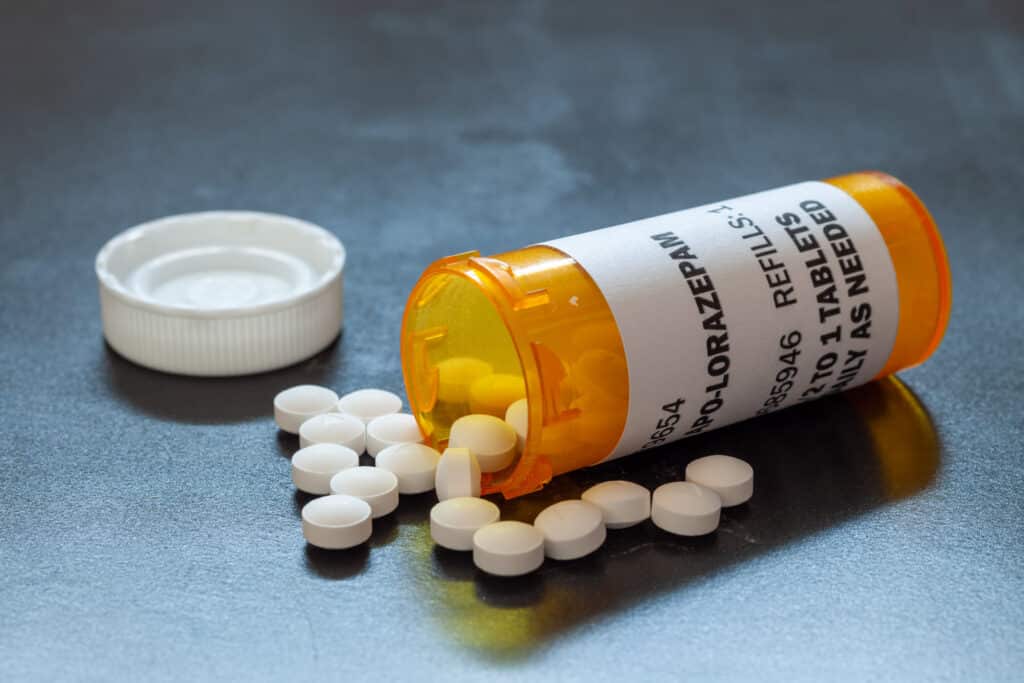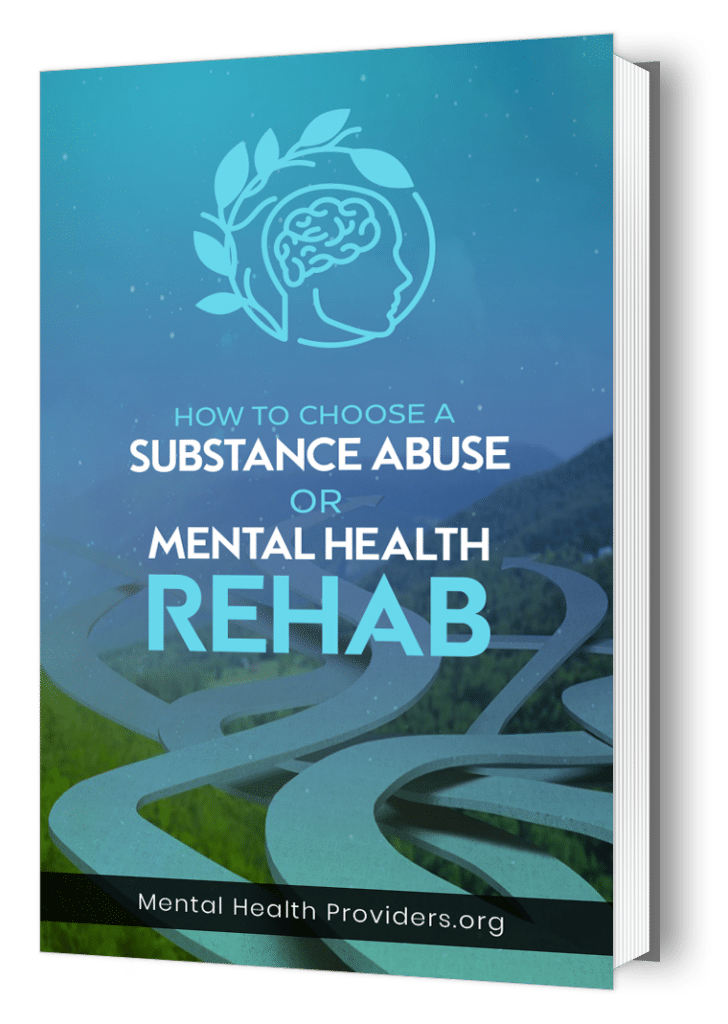
Benzodiazepines
- Last Updated: May 12, 2023
Benzodiazepines, commonly called “Benzos,” are prescription drugs that treat anxiety, insomnia, and other conditions. These drugs enhance the activity of a neurotransmitter called GABA, which helps reduce anxiety and promote relaxation. Examples include Xanax, Valium, Ativan, and Klonopin. Benzodiazepines are generally safe when used as prescribed but can be highly addictive and can lead to abuse and dependence when misused. Use our free portal to find benzo rehabs near your zip code.
What is Benzodiazepine Abuse?
Benzodiazepine abuse can lead to serious health consequences and should not be taken lightly. Misusing or abusing these drugs can result in addiction, overdose, and even death. It is vital to be aware of the risks and to seek help if you or someone you know is struggling with benzodiazepine abuse. Treatment options can help individuals safely and effectively manage their benzodiazepine use or eliminate it. If you or someone you know is struggling with benzodiazepine abuse, seeking professional help as soon as possible is essential. Remember that treatment is available, and recovery is possible.
Benzodiazepines are highly addictive because they produce an immediate and intense sense of relaxation and euphoria, which can be very reinforcing. This reinforcement leads to changes in the brain’s reward pathways, which can contribute to the development of addiction. Additionally, Benzodiazepines can produce withdrawal symptoms when discontinued, which can be highly unpleasant and lead individuals to continue using the drug to avoid withdrawal.
The mechanism of action of Benzodiazepines involves binding to specific receptors on the surface of GABA neurons in the brain. This binding enhances the activity of GABA, which decreases the excitability of other neurons in the brain. This results in a sedative and hypnotic effect, which can help to reduce anxiety and promote sleep. However, that exact mechanism of action also makes Benzodiazepines highly addictive.
Benzodiazepines can stay in the system for varying lengths depending on the specific drug and individual factors such as age, metabolism, and liver function. Short-acting Benzodiazepines such as Xanax typically have a half-life of 6-12 hours, while long-acting Benzodiazepines such as Valium can have a half-life of up to 50 hours.
Withdrawal from benzos can occur when an individual abruptly stops or significantly reduces their benzodiazepine use after prolonged use. Withdrawal symptoms can include anxiety, insomnia, tremors, seizures, and even death in severe cases. These withdrawal symptoms can last several weeks or longer and be difficult to manage without medical intervention. For this reason, it is recommended that individuals who wish to discontinue benzodiazepine use do so under the guidance of a medical professional.
Symptoms of Benzodiazepine Abuse
- Drowsiness or sedation
- Confusion or disorientation
- Impaired coordination or balance
- Slurred speech or difficulty speaking
- Memory problems or forgetfulness
- Agitation or irritability
- Mood swings or emotional instability
- Dizziness or lightheadedness
- Nausea or vomiting
- Blurred vision or double vision
- Headaches or migraines
- Tremors or shaking
- Seizures or convulsions
- Blackouts or memory loss
- Respiratory depression or difficulty breathing
- Coma or death (in severe cases)
Signs of Benzodiazepine Abuse
- Taking Benzodiazepines in higher doses or more frequently than prescribed
- Using Benzodiazepines for non-medical reasons
- Developing tolerance to Benzodiazepines, requiring higher doses to achieve the same effect
- Experiencing withdrawal symptoms when attempting to quit or cut back on Benzodiazepines
- Neglecting responsibilities or activities due to benzodiazepine use
- Continuing to use Benzodiazepines despite negative consequences, such as health problems or legal issues
- Obtaining Benzodiazepines through illegal means, such as buying them on the street or online
- Hiding or lying about benzodiazepine use
- Experiencing physical symptoms such as drowsiness, slurred speech, impaired coordination, or memory problems
- Experiencing psychological symptoms such as confusion, agitation, irritability, or mood swings
- Using Benzodiazepines in combination with other substances, such as alcohol or opioids, can increase the risk of overdose
- Using Benzodiazepines to cope with stress or negative emotions
- Engaging in risky behaviors while under the influence of Benzodiazepines, such as driving or operating heavy machinery
- Experiencing financial difficulties or legal problems related to benzodiazepine use
Benzodiazepine Rehab Treatment Options
Benzodiazepine abuse is a serious issue that can harm a person’s physical and mental health, as well as their relationships and overall quality of life. Fortunately, various rehab treatment options are available for those struggling with benzodiazepine addiction.
One common form of treatment is benzo inpatient rehab, where individuals live at a treatment facility and receive around-the-clock care and support. Inpatient rehab can benefit individuals with severe addiction or those who have relapsed multiple times. Inpatient rehab programs often include a combination of individual and group therapy, medication management, and other holistic treatments such as yoga, meditation, or art therapy.
Another option for benzodiazepine abuse treatment is benzo outpatient rehab, where individuals attend therapy sessions and other treatments during the day but return home at night. Outpatient rehab programs can be more flexible for individuals with work or family obligations but still need professional support to overcome their addiction. Outpatient rehab programs can include individual or group therapy, medication management, and other behavioral therapies such as cognitive-behavioral therapy (CBT) or motivational interviewing (MI).
Detoxification is also a crucial step in the treatment of benzodiazepine addiction. This process involves slowly tapering off the drug under medical supervision to minimize withdrawal symptoms and ensure a safe and effective transition to sobriety. Some rehab facilities offer medically assisted detoxification, where they administer medication to ease withdrawal symptoms and increase their chances of successful detox.
Regardless of the type of rehab treatment chosen, the most critical aspect of benzodiazepine addiction recovery is ongoing support and aftercare. This may include regular therapy sessions, support groups, or other activities that promote continued sobriety and healthy coping mechanisms. With proper treatment and support, individuals struggling with benzodiazepine addiction can overcome it and lead healthy and fulfilling life. Call for Immediate Assistance1-888-546-6005
Your Recovery Starts Today!
Frequently Asked Questions About Benzodiazepines
Benzo withdrawal can be a serious medical condition, and in some cases, it can lead to death, although this is rare. Withdrawal symptoms can range from mild to severe and may include anxiety, insomnia, irritability, tremors, seizures, and hallucinations.
In some cases, people who have been using Benzodiazepines for an extended period may experience delirium tremens, a severe form of withdrawal that can cause high fever, rapid heartbeat, confusion, and seizures. Delirium tremens can be life-threatening if left untreated.
It’s important to note that abrupt cessation of Benzodiazepines can be dangerous and should only be done under medical supervision. A doctor can help you taper off Benzodiazepines slowly and safely to minimize the risk of withdrawal symptoms.
Barbiturates and Benzodiazepines are both types of medications used to treat anxiety and insomnia, but they work in different ways and have some differences in their side effects and risks.
Barbiturates are sedative-hypnotic medication that works by depressing the central nervous system. They were commonly used in the past to treat anxiety, insomnia, and seizures, but they are now less widely used due to their high risk of dependence and overdose. Barbiturates can cause drowsiness, impaired coordination, and slowed breathing. They can be dangerous when combined with alcohol or other sedatives.
Benzodiazepines are another medication for anxiety, insomnia, and other conditions. They work by enhancing the activity of a neurotransmitter called gamma-aminobutyric acid (GABA) in the brain, which helps to reduce anxiety and promote relaxation. Benzodiazepines are generally considered to be safer and less addictive than barbiturates. However, they can still be habit-forming and cause drowsiness, dizziness, and impaired coordination. They can also cause memory problems, especially when taken in high doses or for long periods.
Overall, both barbiturates and Benzodiazepines have their own set of risks and benefits, and a healthcare professional should carefully monitor their use.
The detection time for Benzodiazepines in urine can vary depending on the specific drug and individual factors. However, Benzodiazepines can typically be detected for up to 4-6 weeks after use.
Anxiety and panic attacks, insomnia or disturbed sleep, irritability, agitation, restlessness, tremors, muscle twitching, sweating and increased heart rate, headaches, migraines, nausea and vomiting, seizures (in severe cases)
If you are here experiencing symptoms of benzodiazepine withdrawal, then it’s critical to prioritize locating proper treatment and consult with your prescriber.
Yes, Benzodiazepines can be highly addictive. They enhance the effects of a neurotransmitter called gamma-aminobutyric acid (GABA) in the brain, which can produce a calming effect. Over time, the brain can depend on the drug to have this effect, leading to physical dependence and addiction.
Flumazenil is a medication that is sometimes used to treat benzodiazepine abuse and overdose. It works by blocking the effects of Benzodiazepines in the brain, which can help reverse the drug’s sedative and hypnotic effects.
In cases of benzodiazepine overdose, flumazenil can be used to quickly and safely reverse the effects of the drug and prevent serious complications such as respiratory depression and coma. However, it is essential to note that flumazenil is not recommended for routine use in treating benzodiazepine addiction or withdrawal. This is because it can cause sudden withdrawal symptoms and may not address the underlying causes of addiction.
Instead, the most effective way to treat benzodiazepine abuse and addiction is through a comprehensive treatment program that includes medical detox, behavioral therapies, and ongoing support. A healthcare professional can guide the most appropriate treatment options based on a person’s needs and circumstances.
Addiction to Benzodiazepines is not yet something that can simply be resolved with an antidote. However, as part of a treatment plan, medically supervised administration of flumazenil may be used to wean off Benzodiazepines.
It’s possible to receive treatment for both Benzodiazepines and alcohol simultaneously, but it’s best to first consult with the most suitable treatment center for your unique needs.
Related Articles

Download Free Guide
Read Mental Health Provider’s comprehensive guide about how to choose a rehab that’s right for you or a loved one. We cover everything from costs to what to expect while in treatment!


